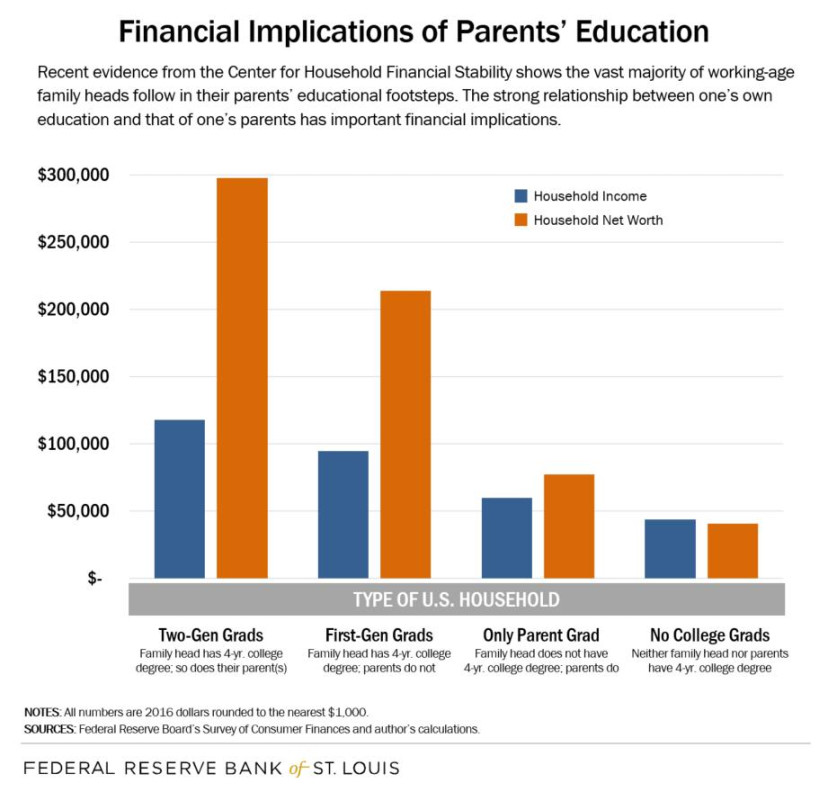Welcome to our website! We offer a wide variety of profitable financial management of all ages. Our financial page is perfect for financial and management activities in the modern era like now. Everyone needs financial intelligence to survive and have a stable economy. This can also be beneficial for young people, they are our next generation in the future. By instilling sensitivity to financial management, they will be able to compete in the future.
We have a variety of financial pages to choose from, including investing in stocks, gold, crypto and more. We also have a financial application page that can be used to help manage your finances. Everything on this page discussing how to manage finances is free to download and print.
How Wealthy Families Finance Higher Education
Higher education is becoming increasingly expensive, with tuition costs rising every year. While many students rely on scholarships, loans, and part-time jobs to finance their education, wealthy families have the advantage of being able to afford the high costs of college without incurring significant debt. Here, we will explore how wealthy families finance higher education for their children.
What do you mean by financing higher education?
Financing higher education refers to the process of paying for college or university expenses, including tuition, room and board, books, and other fees. This can be done through a variety of means, such as savings, investments, scholarships, grants, loans, or work-study programs.
How do wealthy families finance higher education?

Wealthy families have several options for financing higher education, including:
Using savings and investments: Wealthy families often have dedicated college savings accounts or investment portfolios that can be used to cover the costs of higher education.
Paying tuition upfront: Some families can afford to pay for their children’s education in full without the need for loans or financial aid.
Utilizing scholarships and grants: While wealthy families may not qualify for need-based financial aid, their children may still be eligible for merit-based scholarships or grants.
Employer tuition assistance: Some companies offer tuition assistance programs for employees and their families, which can help offset the costs of higher education.
Education trusts: Wealthy families may set up education trusts or other financial vehicles to earmark funds for their children’s education.
Information on financing higher education for wealthy families

It is important to note that while wealthy families have more resources at their disposal, financing higher education can still be a significant financial burden. The rising costs of college and university tuition, coupled with other expenses such as housing and textbooks, can add up quickly. Additionally, the decision of how to finance higher education can have long-term implications for both the student and their family, including potential tax considerations and estate planning strategies.
Ultimately, the goal for wealthy families is to ensure that their children have access to the best possible education without incurring unnecessary debt or financial hardship. By carefully planning and utilizing available resources, wealthy families can help their children achieve their academic and career goals.
Conclusion
Financing higher education is a complex and important decision for all families, but wealthy families have the advantage of more resources and options at their disposal. By carefully planning and utilizing available resources, wealthy families can help ensure that their children have access to the best possible education without incurring significant debt. Ultimately, the goal is to provide a solid foundation for their children’s future success.
FAQs
1. Do wealthy families qualify for financial aid for higher education?
While wealthy families may not qualify for need-based financial aid, their children may still be eligible for merit-based scholarships or grants.
2. What are some tax considerations for financing higher education?
There may be tax implications for using certain financial vehicles to finance higher education, so it is important to consult with a financial advisor or tax professional.
3. Are there any drawbacks to financing higher education for wealthy families?
While wealthy families have more resources at their disposal, financing higher education can still be a significant financial burden and require careful planning and consideration.
4. How can wealthy families best plan for financing higher education?
Wealthy families can best plan for financing higher education by starting early, setting up dedicated savings or investment accounts, and exploring all available options for scholarships, grants, and employer tuition assistance programs.
5. What are some alternative ways for wealthy families to finance higher education?
In addition to the options mentioned above, wealthy families can also consider utilizing education trusts, 529 savings plans, or other financial vehicles specifically designed for education expenses.
Thank you for reading this article to the end. Don’t forget to visit this website again and share this article do wealthy families finance higher education for your friends. We always try to present the best for our visitors, there are many other interesting articles, such as :




